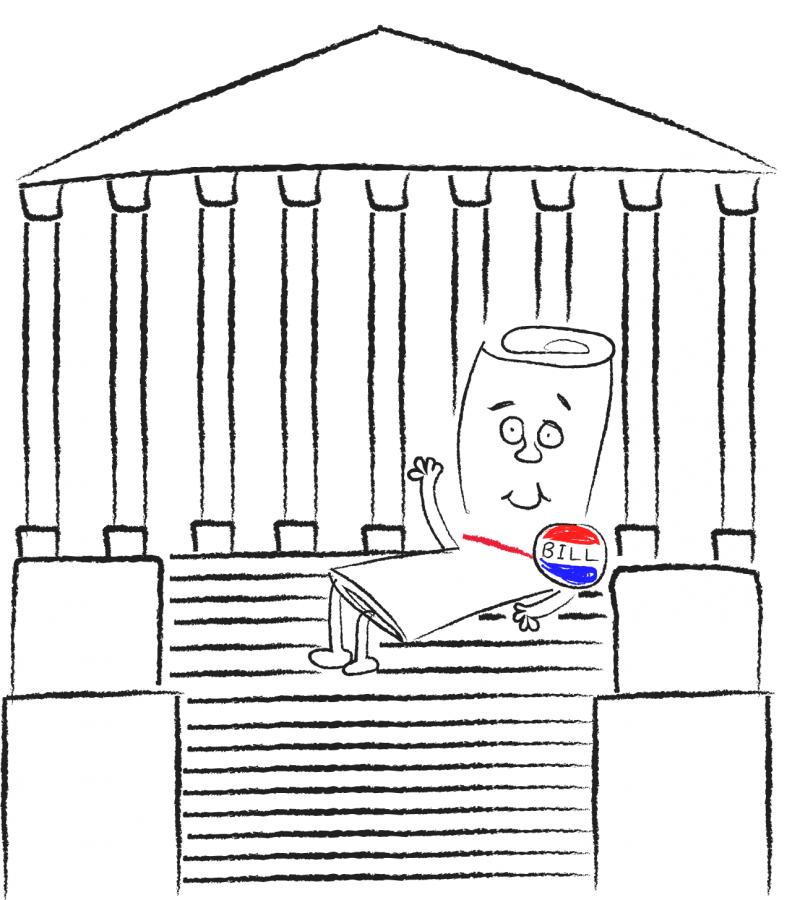So, you’ve read the news, you’ve gone to the rallies, protests and marches, and after all this you’re still thinking to yourself: “How much has my participation really impacted the issue?”
Well, good job. You’ve taken the first step. You’ve learned about a topic you care about and publicly shown your support. But here’s the next, and often overlooked, step: proposing and passing legislation.
Simply defined, legislation is laws. In the United States, we elect representatives to write our laws.
“Legislation is not like the sexy stuff,” said Adam Yonkers, Palo Alto High School U.S. Government teacher, “It’s like the nuts and bolts of a democracy.”
Compared to executive action, a commonly used tactic by presidents to quickly pass laws, legislation has more longevity, Yonkers said.
“In [the] absence of the Republicans and the Democrats working together on legislation, that [legislation] is not going to happen,” Yonkers said.
To pass legislation and make a change, you will need to follow four steps:
First and foremost: Be informed. Being an informed member and active participant of society is the best thing you can do if you want to begin to make a difference. If you want to discuss politics in an effective way, it pays to know what you are talking about. When getting your news, look at multiple reliable sources and be able to separate fact from fiction.
Second: Contact your representatives. Politicians rely on votes for their position in office and are it’s their job to listen to you. As the people in charge of writing and passing laws that directly impact our lives, school board members, city council members, county representatives and Congress-members are some of the most valuable people you can work with to make a change on paper. California has two senators and 53 representatives to represent us in Washington, D.C. Our senators from California are Dianne Feinstein and Kamala Harris, and our local representative is Anna Eshoo.
Third: Attend legislative meetings. Town hall meetings happen in your own community and are a way for politicians to share information and for you to share ideas with them. The Palo Alto City Council public forums dates can be found here: https://www.cityofpaloalto.org/cals/default.asp
Fourth and finally: Vote. If you’re in high school it’s unlikely you are legally able to do so, but as early as 16 years old you can pre-register, and at 18 you are eligible to vote. Being an informed and active voter is the easiest way to make a difference in your community at a local and national level. Register or pre-register here: https://registertovote.ca.gov/
